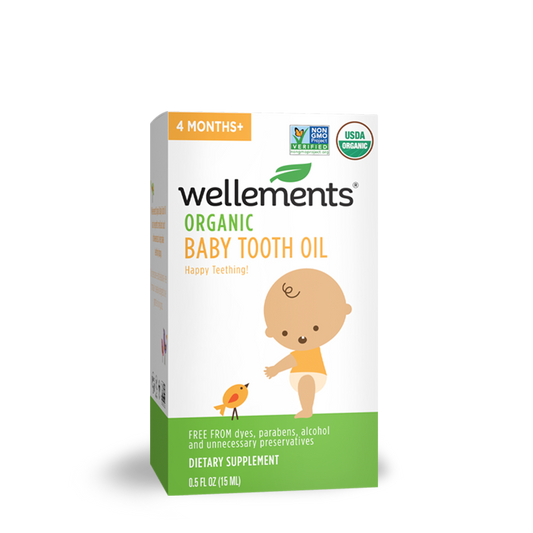Teething & Sleep: What To Expect During the Night
| updated:Share

Teething is one of those milestones that we all anticipate as parents. We’ve heard the stories and had friends suggest countless remedies, yet we still don’t know exactly what to expect when teething. Well, here’s the scoop!
Teething or Sleep Regression?
Sleep regression typically occurs in children as early as four months old to 2 years old. It is not uncommon for once-great sleepers to suddenly wake up two to three times per night. The cause of eight-month sleep regression typically stems from developmental or physical changes.
Sudden waking can stem from several factors, including greater mobility and teething. Around eight months, your child begins to learn and experience more challenges. Crawling, walking, and exploring are exciting, typically more than sleep. The energy and excitement the child experiences from everyday exploration makes them feel cooped up and antsy in their cribs, leading to restless nights.
However, while greater mobility is one cause of sleep regression, another common cause is teething. If you are not sure which is causing your little one to wake at all hours of the night, look for several signs, including:
- Red gums
- Teeth poking through
- Excessive or persistent drool
- Irritability
- Loss of appetite

How To Tell if It’s Teething Discomfort Causing Sleep Issues
When babies experience the growth of their first teeth, it can be incredibly uncomfortable, causing the baby to become fussy and restless. When your baby is exhibiting classic teething symptoms, you can safely assume they are, in fact, teething.
How To Soothe Teething Baby at Night
1. Offer Something Cold
Before going to bed, place a clean, wet washcloth in the freezer for 30 to 60 minutes, then transfer it to the fridge. When your baby wakes up, give them the washcloth to chew on.
2. Give Them a Teething Ring
Teething rings are used to act as gum massagers. If your child wakes up fussy because of gum discomfort, give them a teething ring to help them settle.
3. Apply Pressure
Sometimes, your baby’s sore gums will feel better with some pressure. When your baby wakes up, wash your hands and place your fingers in their mouth. Apply gentle pressure on their gums for relief.
4. Use Your Fingers
Like the above, you can use your fingers to soothe teething pain by allowing your child to chew on them. Again, you’ll want to wash your hands before.
5. Distract and Redirect
Sometimes, a baby doesn’t need anything more than a distraction. Try using a white noise machine or gentle music to distract your baby and redirect their attention.
6. Use Medicine
If none of the above work for your baby, consider using medication. You can talk to your doctor for options or try Wellements Organic Baby Tooth Oil for teething. It is organic, gluten-free, non-GMO, and certified vegan. Teething is a challenging time for babies and their parents. However, it is more painful for the child. The best advice is to know that this, too, shall pass.
4.5 /
5.0
(78)
78
total reviews
Baby Tooth Oil
Sale price
$9.99



